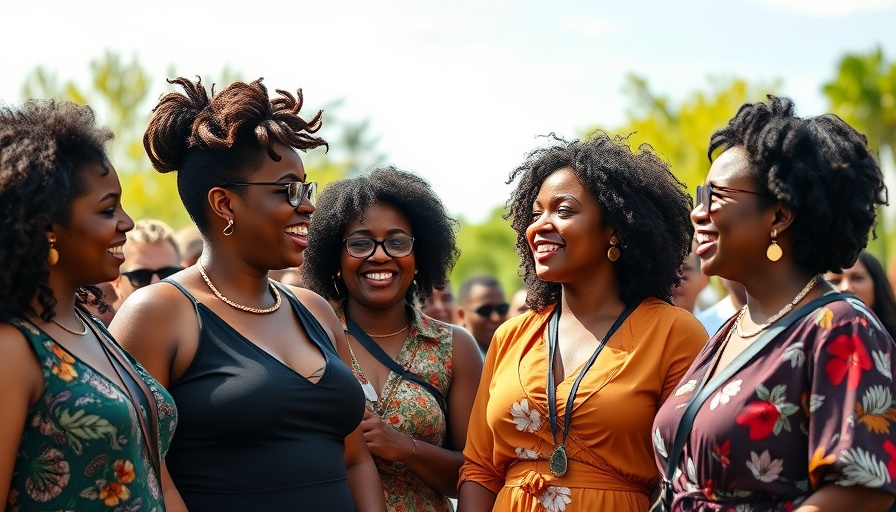
A Journey of Faith and Empowerment
Dr. Shavon Arline-Bradley, the president and CEO of the National Council of Negro Women (NCNW), recalls a pivotal moment at the age of nine that intertwined her faith with a sense of justice. A Baptist preacher’s VHS gift of Eyes on the Prize, where she first saw Emmett Till's haunting face, ignited an early passion for advocacy and service to the Black community. This awakening prompted her lifelong commitment to address social injustices faced by Black women and their families.
The Significance of NCNW
The NCNW, founded in 1935 by Dr. Mary McLeod Bethune, serves as a powerful national voice for Black women. Arline-Bradley emphasizes its role as a meeting ground for collective action and support. "NCNW is where Black women come together around the same table to understand our economic, educational, and political leadership in this country," she explains. Under her leadership, the organization is not only seeing a surge in membership but also a rejuvenated focus on political advocacy that resonates across generations.
A Sisterhood Beyond Generations
Describing NCNW as "the home of the 92%"—a nod to the overwhelming number of Black women who supported Kamala Harris in the 2024 election—Arline-Bradley highlights the organization’s inclusivity, catering to women from all walks of life, spanning ages from 9 to 98. This broad age range enriches the discussions, allowing both seasoned activists and young leaders to contribute experiences and insights that shape vital social narratives.
Faith as a Catalyst for Change
Arline-Bradley’s journey proves that faith and activism can coexist harmoniously. Growing up in a church environment, she developed a strong sense of community and service, pivotal in shaping her career. Her belief that God plays an active role in every aspect of her life—including politics—bolsters her advocacy efforts, even in spaces where many might remain skeptical of faith’s place in public policy.
Lessons Learned from Challenges
Over the years, Arline-Bradley has tackled complex issues within health care and civil rights. Her tenure with the NAACP, where she worked on the Affordable Care Act legislation, taught her the intricacies of policy-making and the disparities that often arise in it. This experience fuels her current focus on ensuring that Black women not only lead discussions but also have equitable access to the fundamental institutions that govern their lives.
The Future of Black Women’s Leadership
Arline-Bradley’s vision for the NCNW involves empowering future generations of Black women to lead with confidence. She recognizes the power of sisterhood and the importance of educating younger members about political and social dynamics. Her mission is to encourage young women to be informed, engaged, and ready to advocate for their communities, fulfilling the legacy of those who paved the way.
Conclusion: Join the Movement for Empowerment
As we reflect on Dr. Shavon Arline-Bradley’s inspiring journey, it becomes clear that the voices and experiences of Black women are critical to our understanding of social change and injustice. The NCNW opens its doors to all seeking to find their place in this vital collective. Through faith, advocacy, and sisterhood, these women are shaping a future that honors their past while boldly pushing for progress.
 Add Row
Add Row  Add
Add 




 Add Row
Add Row  Add
Add 

Write A Comment